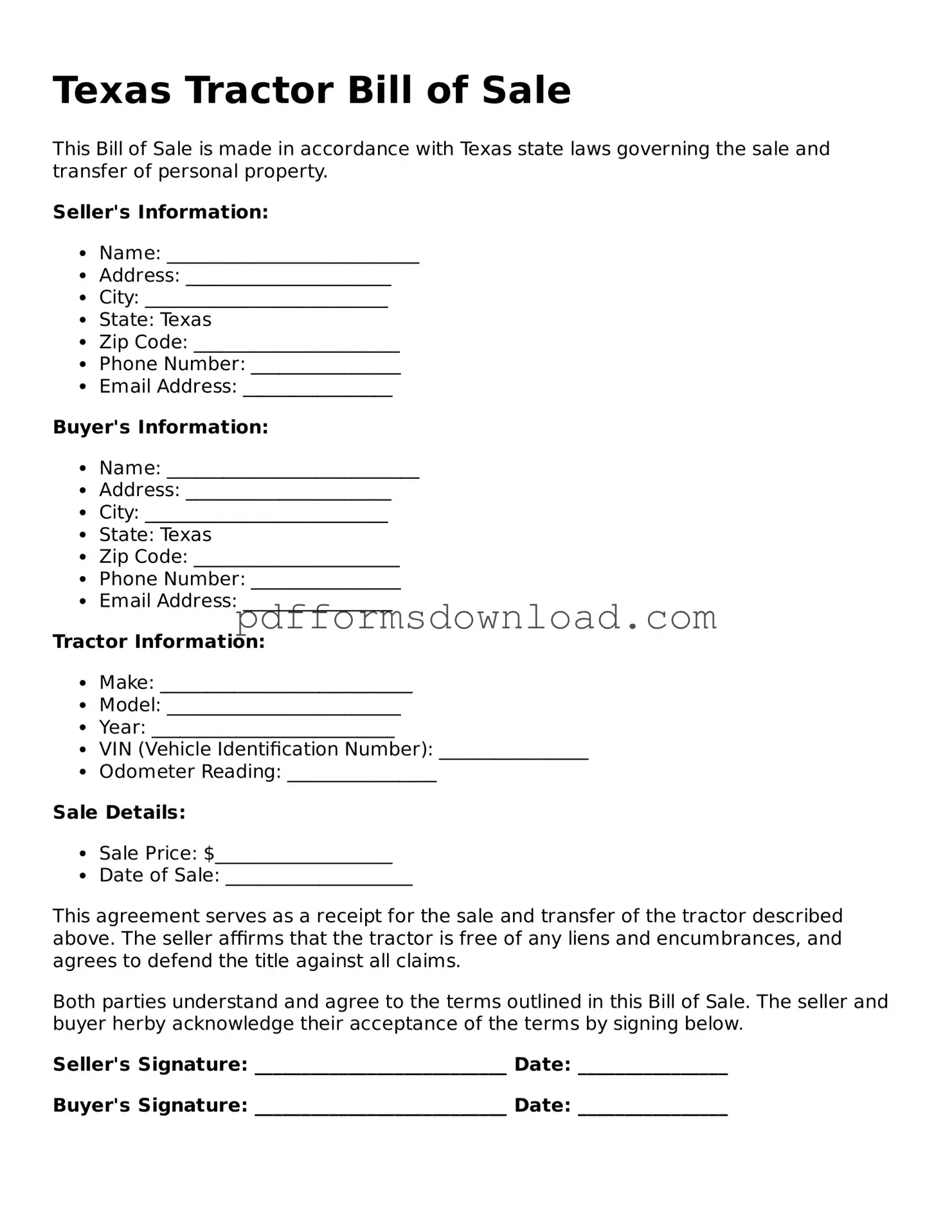Printable Texas Tractor Bill of Sale Form
The Texas Tractor Bill of Sale form is a legal document that records the transfer of ownership of a tractor between a seller and a buyer in Texas. This form serves as proof of the transaction and includes important details such as the sale price, tractor specifications, and the parties involved. Ensuring that this document is properly filled out can help protect both parties in the event of future disputes.
To complete the process, fill out the form by clicking the button below.
Make This Document Now

Printable Texas Tractor Bill of Sale Form
Make This Document Now

Make This Document Now
or
Free PDF File
Your form is almost ready
Complete your Tractor Bill of Sale online — edit, save, and download easily.